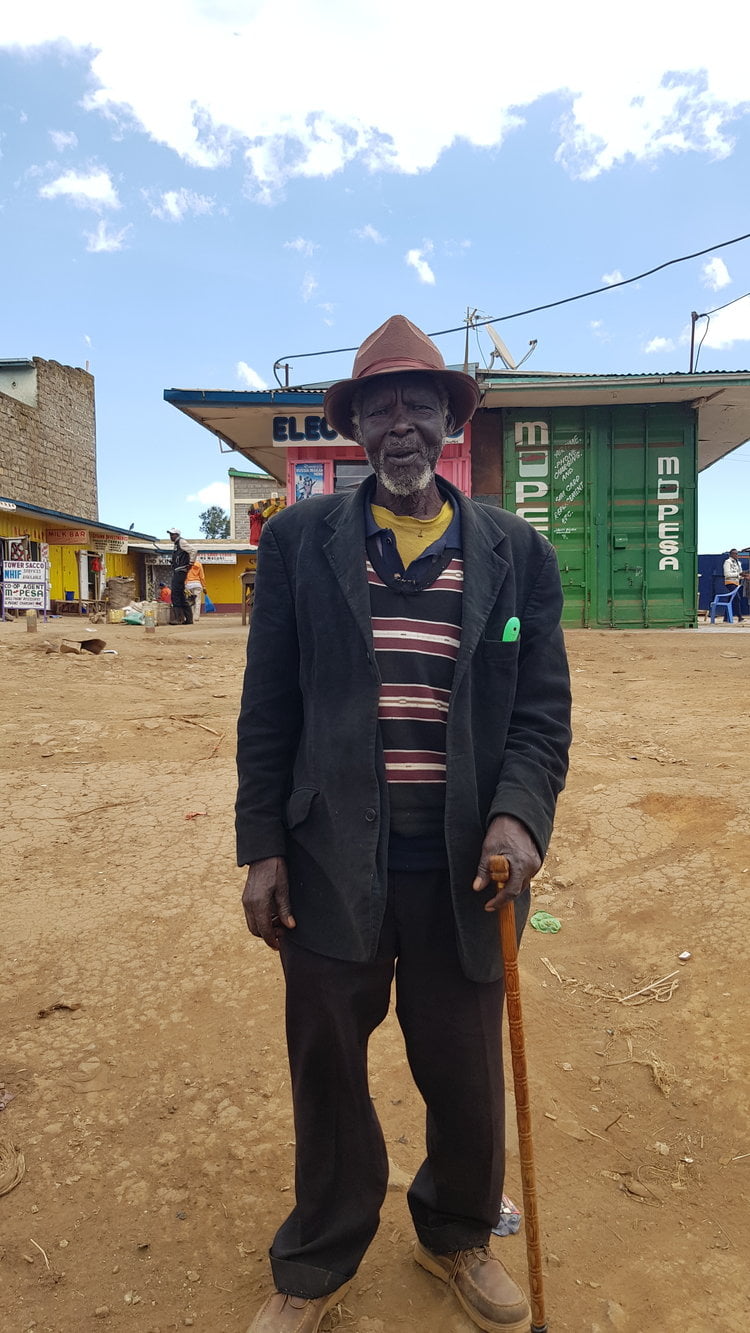Since we first began MBC in January 2018, privileging and centralising the experiences of men, women and children who lived through the Mau Mau Emergency, and bearing witness to their experiences, has been a central part of our approach. Over the months, our team has therefore been visiting veterans of the Mau Mau Emergency and British detention camps, listening to and recording their stories.
We believe that by sharing more of these stories, we will contribute to a richer and more rounded history; one that prioritises the accounts and observations of those who have experienced the impacts of colonialism worldwide – not just the accounts of those who have studied it. This form of engagement is more direct, more personal. It is also an act of recognition; recognition of the fact that British colonialism didn’t just shape certain countries in a structural, political or abstract way – it shaped every single life it touched. And, in many ways, continues to do so, even today.
We are therefore delighted to share the first story from the collectively developed Oral Archive of the Museum of British Colonialism: James Njuguna Mwaura. James shared his story with Beth Rebisz from our team, and her research assistant and translator Caroline Wanjiru. James asked that we write his story down and share it – he is one of thousands of individuals in Kenya keen for their story to be better known.
Below, you can listen to the complete interview Beth and Caroline conducted with James, in both Kikuyu and English. You can also download an English transcript of the interview, transcribed by our team member Maureen Ng’ayu. We hope to upload a Kikuyu Swahili transcript soon, as well as Kikuyu, Swahili, and English subtitles for the video.
James Njuguna Mwaura
James Njuguna Mwaura was twenty years old when the Mau Mau Emergency began. He joined the Mau Mau to fight for Kenya’s freedom and he took the oath. He was arrested and detained in Karatina Detention Camp for four years, surrounded by barbed wire so high they couldn’t reach. He and his fellow detainees were interrogated but not willing to give answers, even if they were mistreated. During the historic court case in 2011, James showed the scars on his back from where he had been beaten.

James Njuguna Mwaura, photographed by our team in in Kenya in 2019. See below to listen to the complete interview.
Read the interview transcript here
If you or anyone you know in the UK or Kenya has direct or indirect experience of the Mau Mau Emergency that you would like to document and share, please get in touch with us via email at info@museumofbritishcolonialism.org.